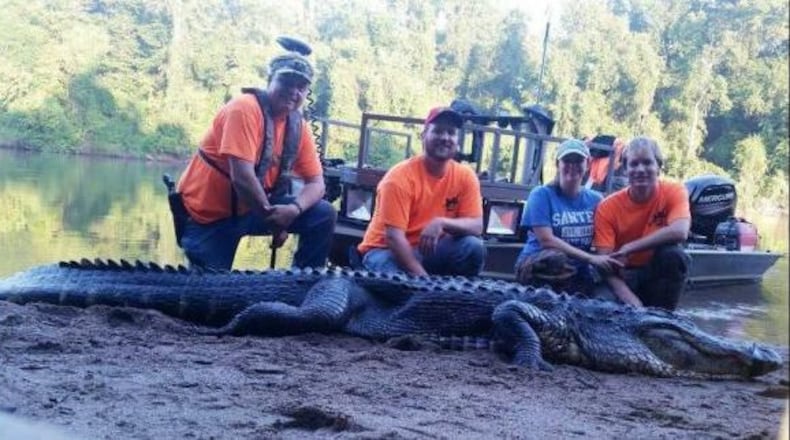Some hunters say they got lucky at “Huckleberry Pond,” where they caught an alligator that measured more than 11 feet.
Actually, it was in the Savannah River, hunting guide Michael Evans told the Augusta Chronicle.
“But here in Hancock County, there’s a fictional place called Huckleberry Pond where all of the biggest fish (and gators) are caught – so people don’t have to reveal their secret fishing spots!” Evans told the newspaper.
Trey Lord and his wife, Magon, caught the beastly 11-foot 7-inch reptile last weekend in Zone 9, which includes Burke, Emanuel, Glascock, Jefferson, Jenkins, Johnson, Richmond, Screven and Washington counties. Georgia wildlife officials limit harvesting of alligators in this area to 80 gators per season.
The gator was much bigger than one spotted in Lake Lanier a few times in July before a group caught it for relocation.
The 2016 season opened at sunset on Aug. 19 and closes at sunrise on Oct. 3, according to the Georgia Wildlife Resources Division.
Lord was one of 1,000 people statewide issued temporary alligator harvest tags by Georgia’s Wildlife Resources Division, which typically receives more than 11,000 applications.
Alligator populations increased to the point that their protected status was downlisted in 1987, allowing greater flexibility to manage populations.
About the Author
Keep Reading
The Latest
Featured

